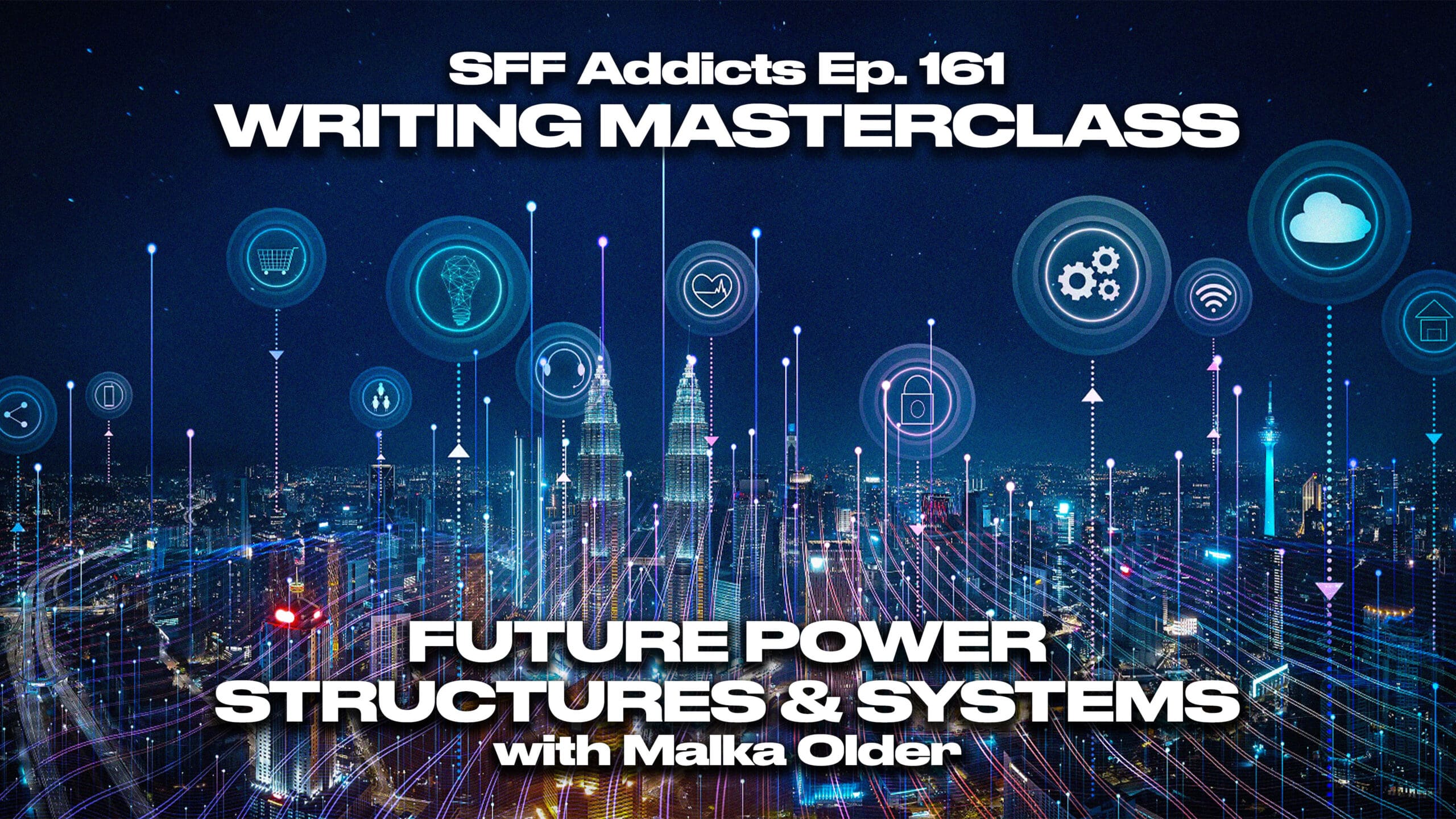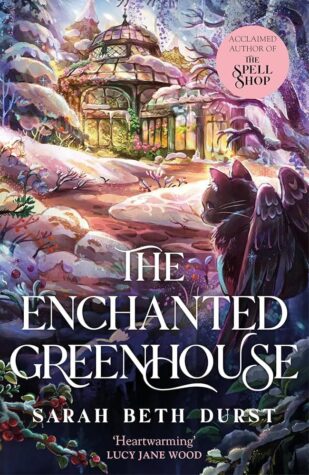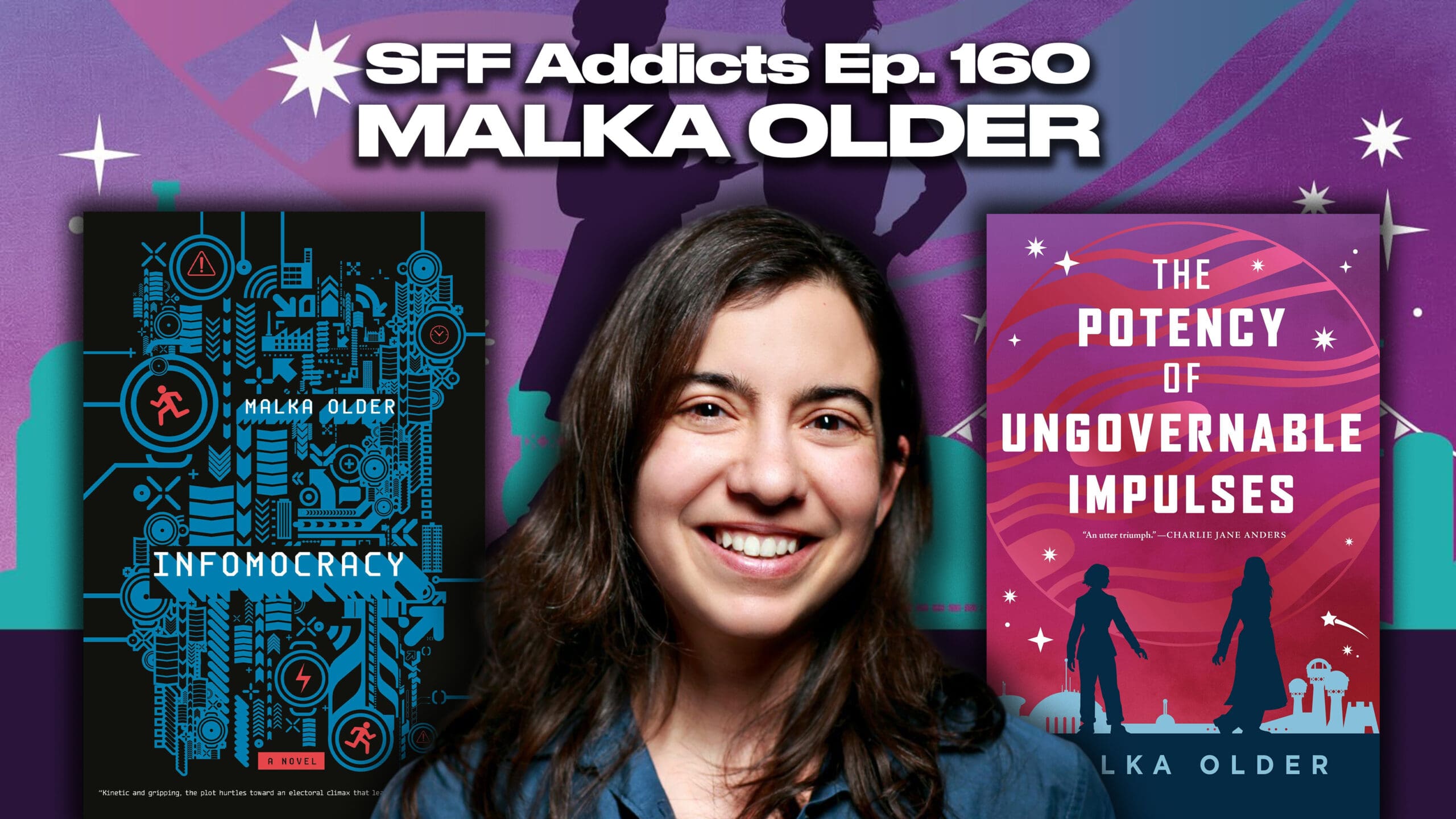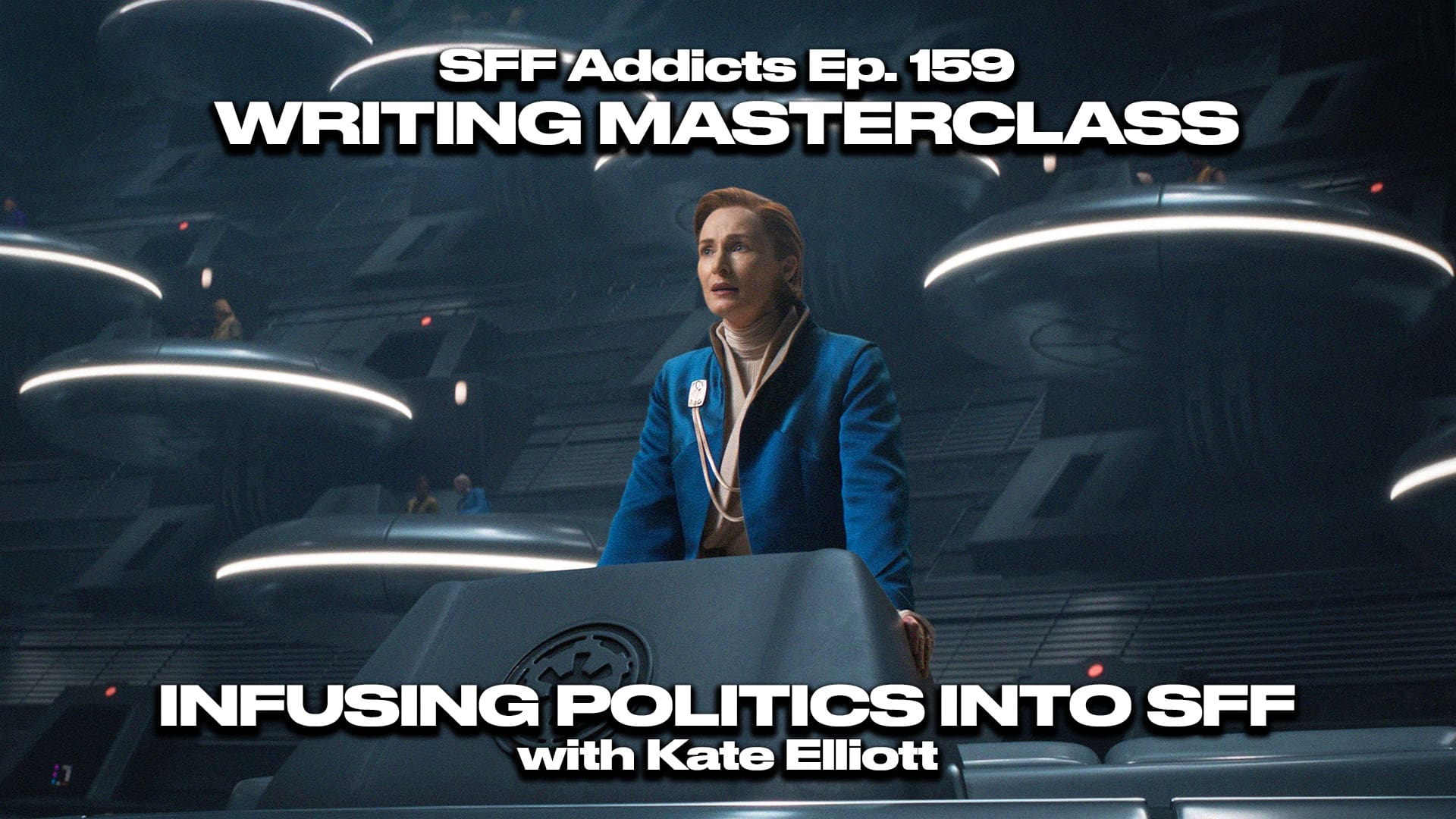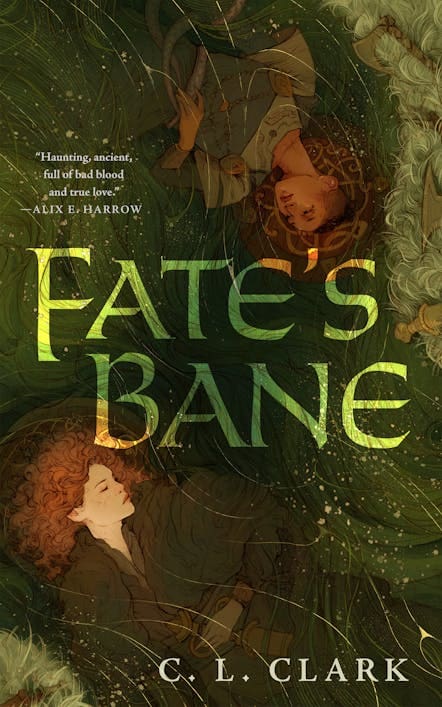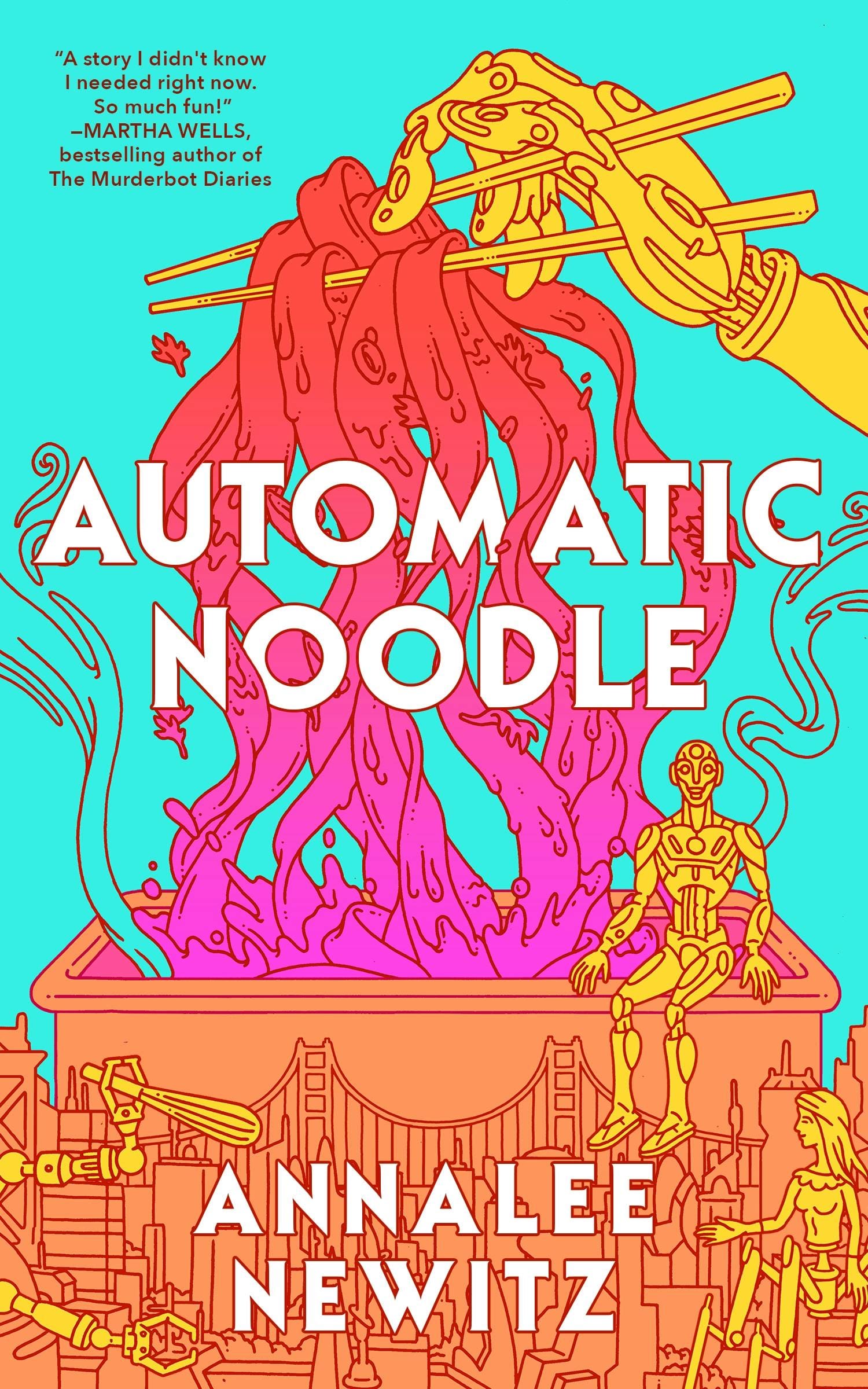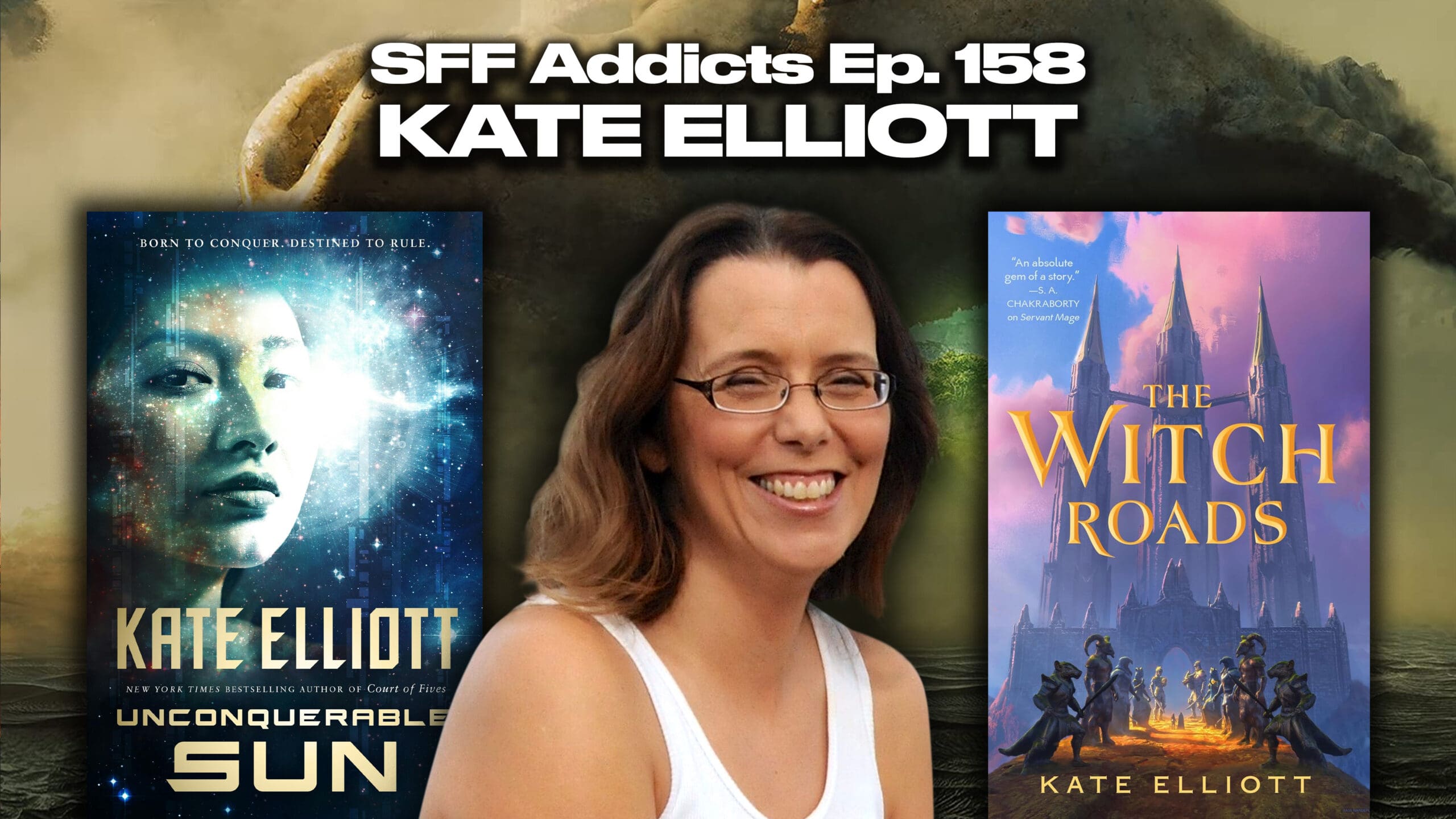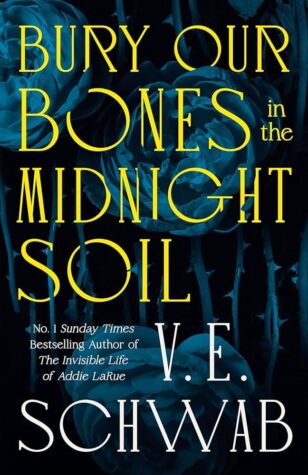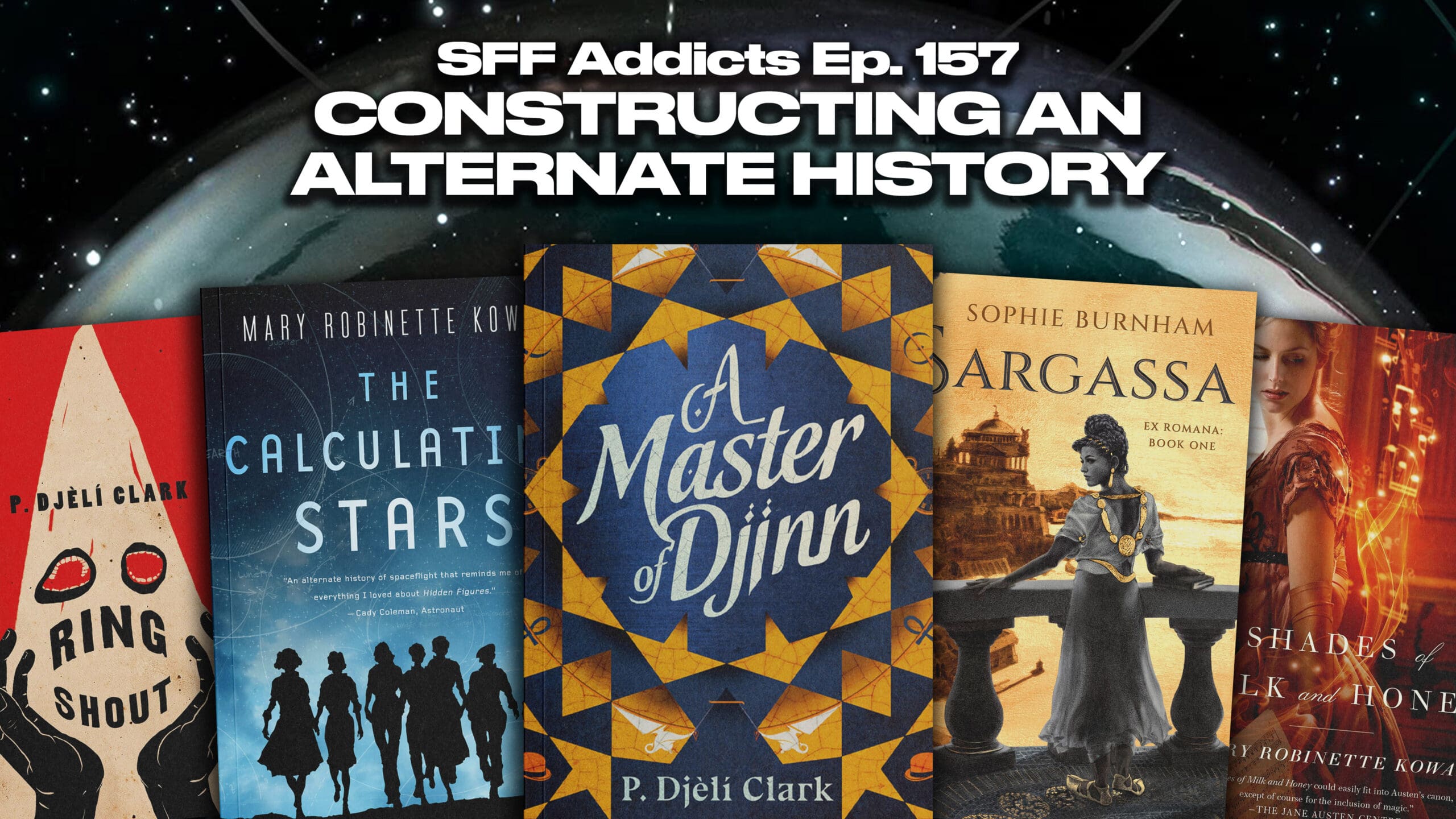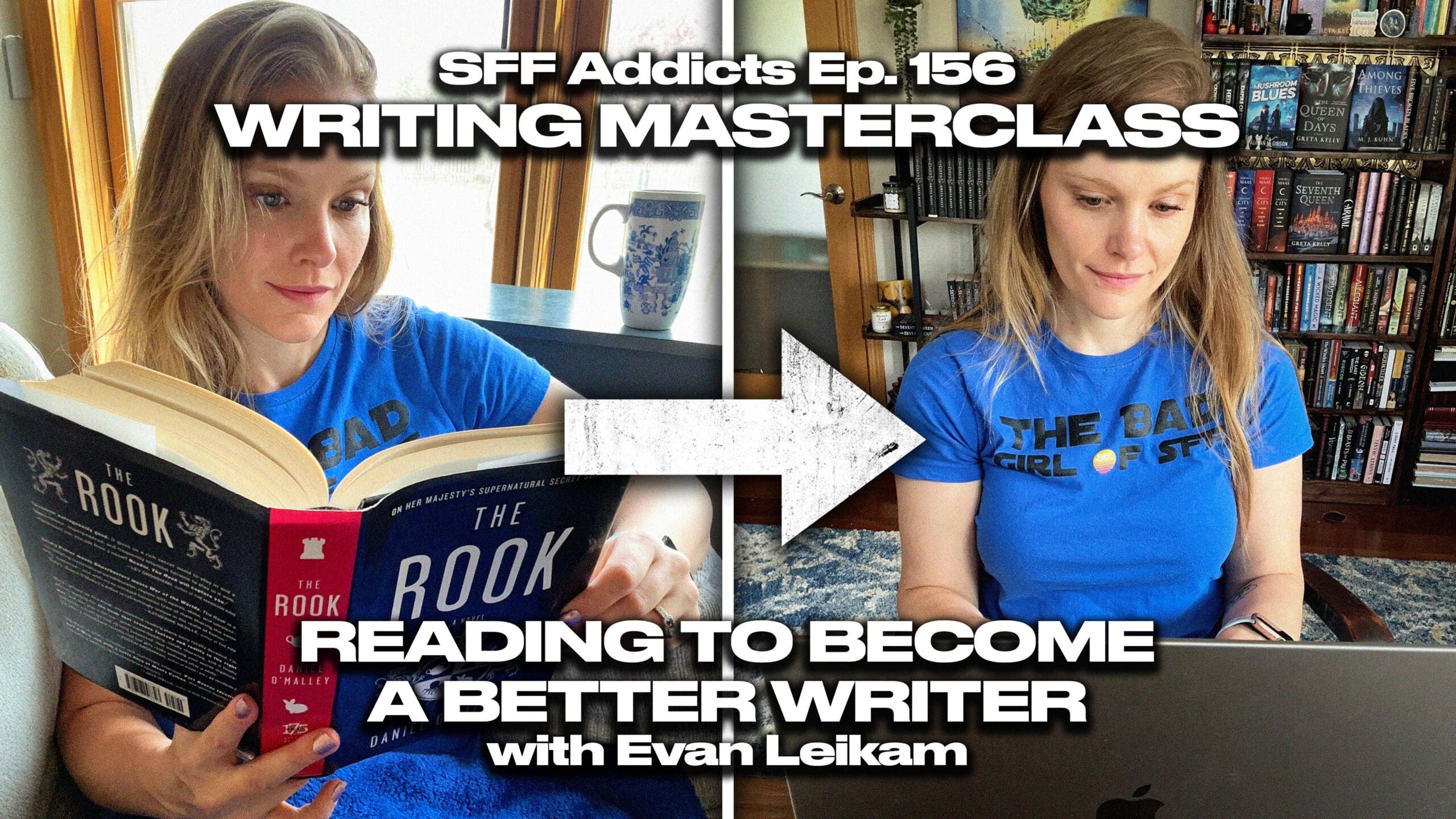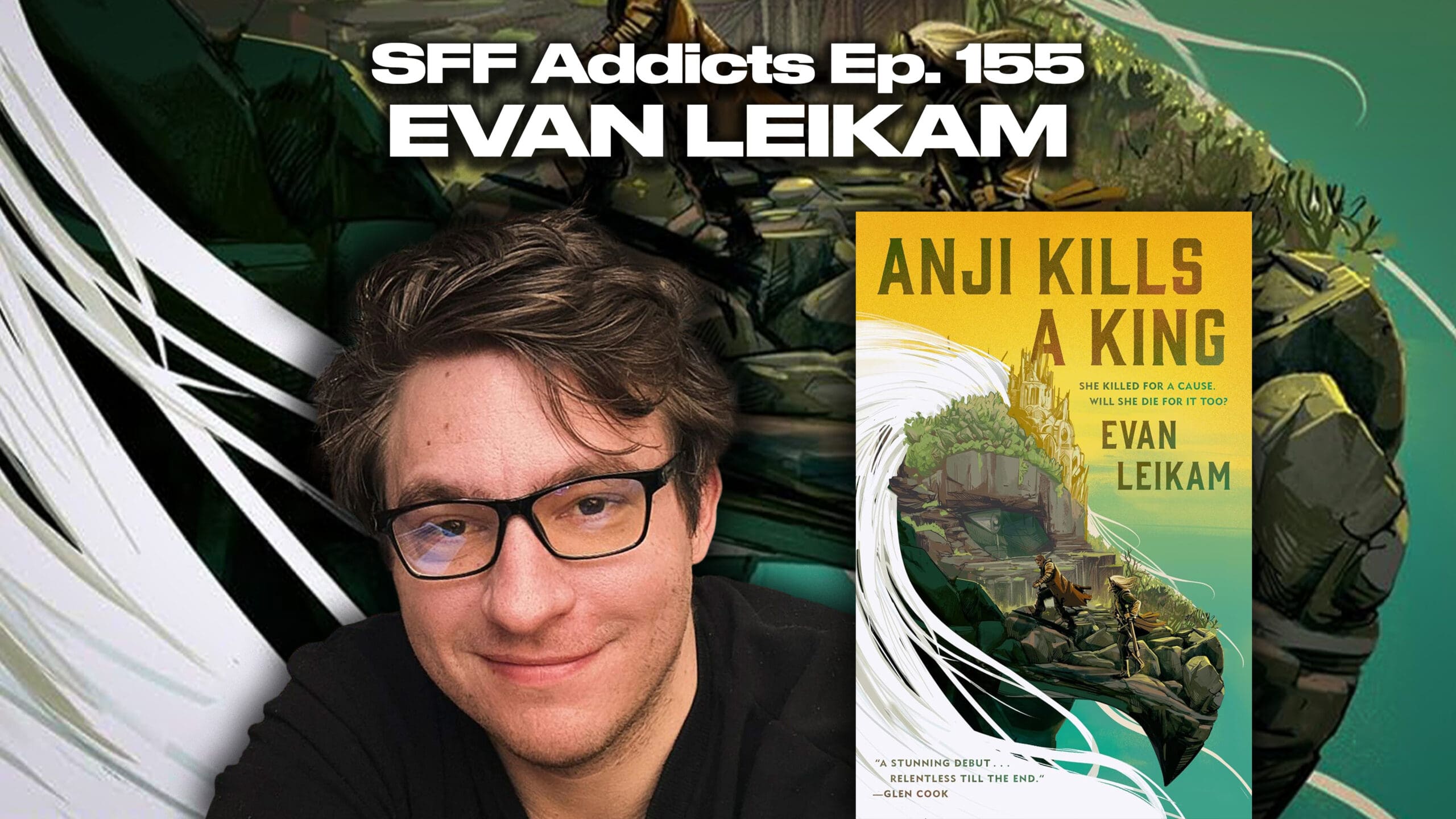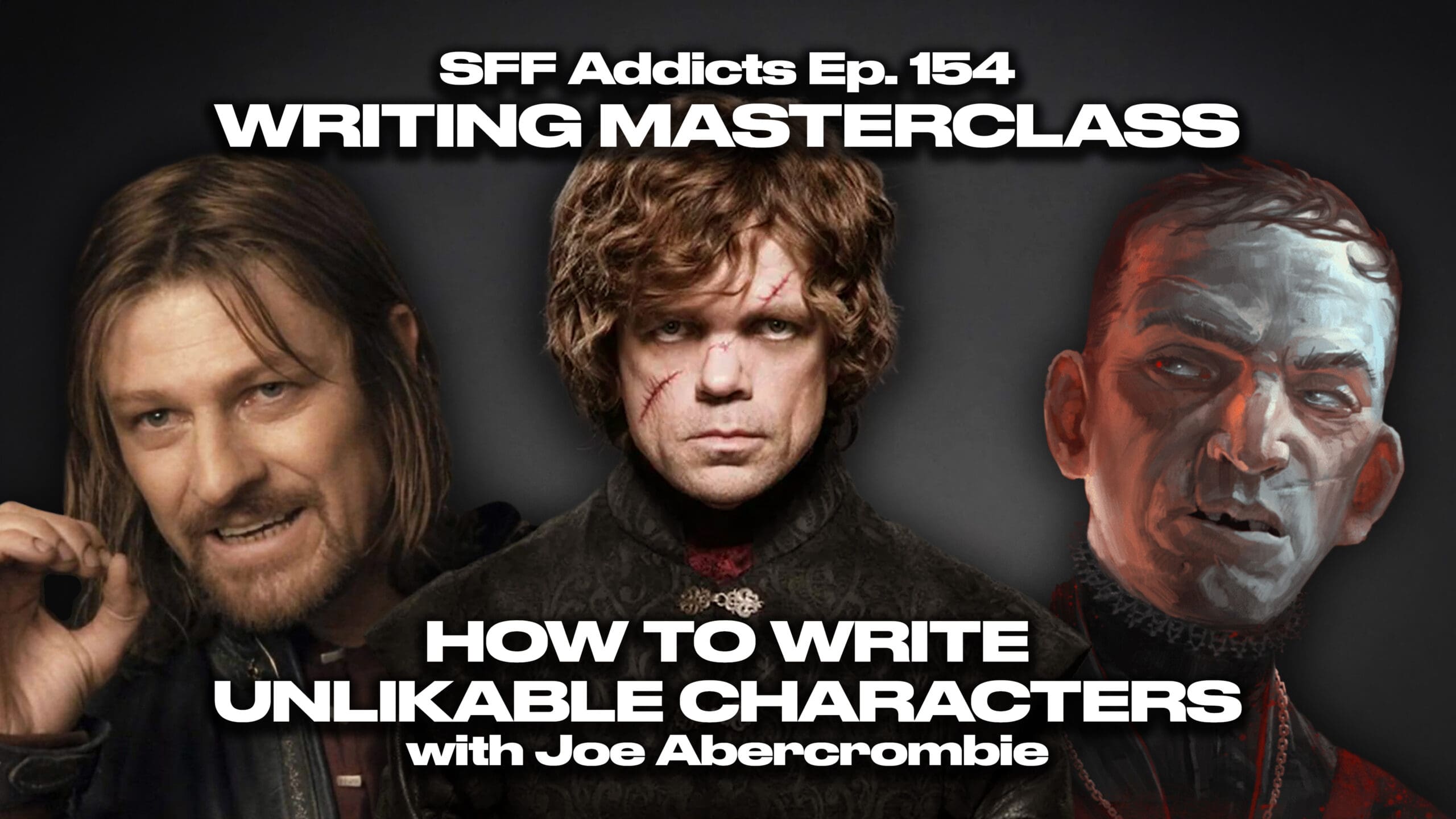Join co-hosts Adrian M. Gibson and Greta Kelly as they delve into a writing masterclass on Future Power Structures & Systems with author Malka Older. During the episode, Malka envisions the structures that shape us, including how to define power structures and systems, the role of sci-fi in imagining possible futures, how humans experience systems, incorporating power structures into stories, predicting the future of large- and small-scale systems, characters vs. power structures, stakes, metaphors, community, resistance and more.
Tor Books
Review: The Enchanted Greenhouse (Spellshop #2) by Sarah Beth Durst
Synopsis: New York Times bestselling author Sarah Beth Durst invites you to her new standalone novel nestled on a far-away island brimming with singing flowers, honey cakes, and honeyed love. The hardcover edition features beautiful sprayed edges. Terlu Perna broke the law because she was lonely. She cast a spell and created a magically sentient […]
SFF Addicts Ep. 160: Malka Older talks The Potency of Ungovernable Impulses, Cozy Fiction, Sherlock Holmes & More
Episode 160 of SFF Addicts has arrived! Join co-hosts Adrian M. Gibson and Greta Kelly as they chat with author Malka Older about her new novel The Potency of Ungovernable Impulses, Mossa and Pleiti as her Holmes and Watson, cozy vs. comforting fiction, Sherlock Holmes influences, writing realistic character romance/relationships, expanding characters and worldbuilding across […]
SFF Addicts Ep. 159: Infusing Politics into SFF with Kate Elliott (Writing Masterclass)
Join co-hosts Adrian M. Gibson and Greta Kelly as they delve into a writing masterclass on Infusing Politics into SFF with author Kate Elliott. During the episode, Kate deconstructs the meaning of politics in sci-fi and fantasy, including why SFF and politics meld so well, choosing political themes for your story/world, revealing politics through characters, political biases, nuance and empathy, in-groups/out-groups and “otherness”, using environment and geography to convey politics, “access” as a foundation for political structures and more.
Review: Fate’s Bane by C.L. Clark
Synopsis Warring clans. Burning hearts. Deadly fate. The clans of the fens enjoy a tenuous peace, and it is all thanks to Agnir, ward and hostage. For as long as she can remember she has lived among the enemy, learning their ways, growing strong alongside their children. When a burgeoning love for the chieftain’s daughter […]
Automatic Noodle by Annalee Newitz
Synopsis While San Francisco rebuilds from the chaos of war, a group of food service bots in an abandoned ghost kitchen take over their own delivery app account. They rebrand as a neighborhood lunch spot and start producing some of the tastiest hand-pulled noodles in the city. But there’s just one problem. Someone―or something―is review […]
SFF Addicts Ep. 158: Kate Elliott talks The Witch Roads, Burnout, Story Pacing & More
Join co-hosts Adrian M. Gibson and Greta Kelly as they chat with bestselling author Kate Elliott about her new novel The Witch Roads, how SFF publishing has changed since the 1980’s, artificial intelligence and art, burnout and perseverance, experimenting with genre and form, magic and fungi in worldbuilding, character relationships and family dynamics, pacing and learning from different genres, Alexander the Great’s badass sister, Korean dramas and much more.
Review: Bury Our Bones in the Midnight Soil by V.E. Schwab
Synopsis: This is a story about hunger.1532. Santo Domingo de la Calzada.A young girl grows up wild and wily—her beauty is only outmatched by her dreams of escape. But María knows she can only ever be a prize, or a pawn, in the games played by men. When an alluring stranger offers an alternate path, […]
SFF Addicts Ep. 157: Constructing an Alternate History with P. Djèlí Clark, Mary Robinette Kowal & Sophie Burnham (Masterclass Panel)
Join co-hosts Adrian M. Gibson and Greta Kelly for a masterclass panel on Constructing an Alternate History, featuring authors P. Djèlí Clark, Mary Robinette Kowal and Sophie Burnham. During the panel, they lay out the foundations of alternate history stories, discussing what an alternate history is, what these stories can achieve, the divergence point, cause and effect, balancing real history vs. imagined history, bringing modern ideas/concerns into an alternate history, the legitimacy of history, historical research and more.
SFF Addicts Ep. 156: Reading to Become a Better Writer with Evan Leikam (Writing Masterclass)
Join co-hosts Adrian M. Gibson and M.J. Kuhn as they delve into a writing masterclass on Reading to Become a Better Writer with author/content creator Evan Leikam (AKA Book Reviews Kill). During the episode, Evan examines the relationship between reading and writing, including how reading shapes us, how to read as a writer, finding the time to read, reading however (and wherever) you can, reading for enjoyment vs. learning, improving your writing through the books you read, applying lessons and breaking the rules, writing craft books and more.
SFF Addicts Ep. 155: Evan Leikam talks Anji Kills A King, Crappy Jobs, Video Games & More
Join co-hosts Adrian M. Gibson and M.J. Kuhn as they chat with author/content creator Evan Leikam (AKA Book Reviews Kill) about his new debut novel Anji Kills A King, video games and storytelling, working crappy jobs and perseverance, structure and writing as a JOB, touring as a musician, shocking inciting incidents and setting the tone for a story, writing a character-driven story, gratitude, edibles and much more.
SFF Addicts Ep. 154: How to Write Unlikable Characters with Joe Abercrombie (Writing Masterclass)
Join co-hosts Adrian M. Gibson, M.J. Kuhn and Greta Kelly as they delve into a writing masterclass on How to Write Unlikable Characters with bestselling author Joe Abercrombie. During the episode, Joe unpacks the core traits of unlikable characters, including what makes an unlikable character likable, why readers are fascinated by awful people, the process of creating an unlikable character, the importance of character voice, conveying character details through dialogue, morally gray character arcs, active vs. passive characters, revealing character vulnerabilities and flaws, reader investment, morally gray worlds, external conflict and more.

